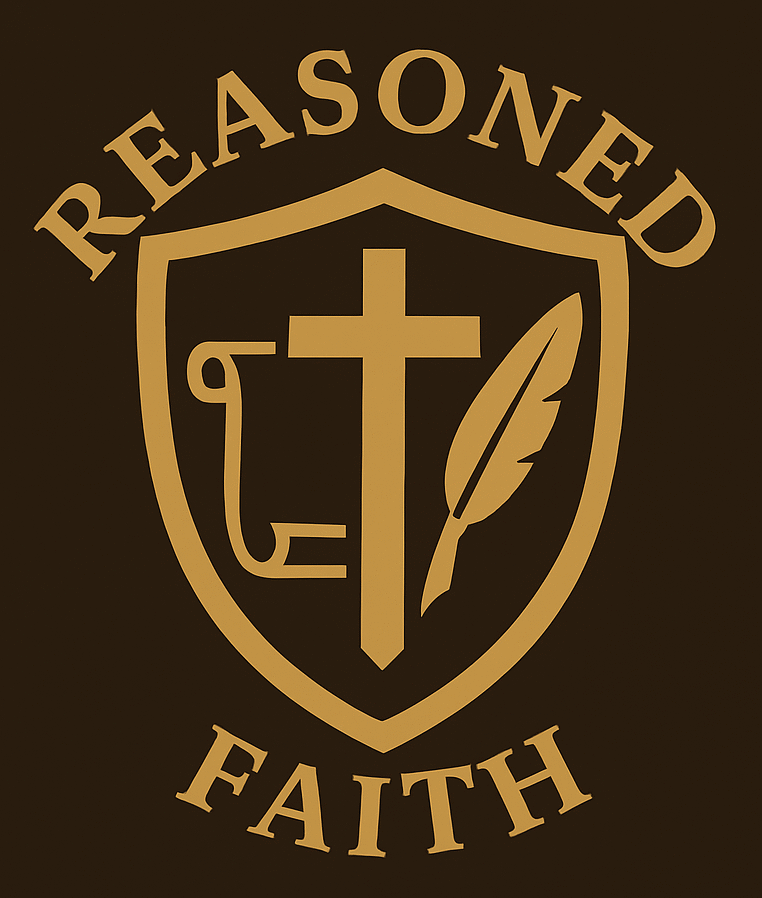
The Challenge of “Bible Alone”
If the Bible alone is supposed to be the final authority and the Holy Spirit guarantees clear understanding, why do so many sincere Christians—who all pray for the Holy Spirit’s guidance—end up with different interpretations? This is a valid question, and it highlights a challenge with the idea of “Bible alone” (also called sola scriptura).
A Simple Analogy: The Math Class
Think about it like this: Imagine a group of students taking the same math class and using the same textbook. They all listen to the teacher and follow the instructions carefully. But when they do their homework, they come up with completely different answers for the same problems.
If the teacher is available and the textbook is clear, why would this happen? Either the instructions aren’t as clear as they thought, or they’re missing something outside the textbook—like tutoring or practice problems to help them understand better.
What the Bible Says About Interpretation
The same principle applies to the Bible. While the Bible is inspired and essential for understanding God’s will, interpreting it isn’t always straightforward. The Bible itself acknowledges this! Peter writes that some parts of Scripture are “hard to understand,” and people can misinterpret them to their own harm (2 Peter 3:16).
If even early Christians warned about misinterpretation, it shows that the Bible isn’t always clear without help.
The Evidence: Thousands of Denominations
Now let’s look at the results. There are thousands of Protestant denominations today, all claiming to follow the Bible alone but teaching very different things. One church might say baptism is necessary for salvation, while another says it’s just symbolic. Some believe in predestination, while others don’t.
Who’s right? They can’t all be correct, but they all claim the Holy Spirit’s guidance.
The Key Point: Jesus Left Us More Than a Book
Here’s the key point: If following “the Bible alone” really worked the way some Protestants claim, we wouldn’t have this chaos of conflicting teachings. Jesus didn’t leave us with a book and say, “Good luck figuring this out!” He left us with a Church, founded on Peter and the apostles, to guide us in truth (Matthew 16:18-19; John 16:13).
The Church is like the teacher in the math class, helping us understand and apply what’s written in the “textbook” of Scripture.
The Catholic Perspective: Scripture and Tradition
That’s why Catholics believe in both Scripture and Sacred Tradition, handed down through the apostles and safeguarded by the Church. This doesn’t mean individuals can’t read the Bible or understand it, but it means the Church helps ensure we don’t misunderstand or fall into error.
After all, God wants us to know Him, not to be confused by a thousand different interpretations.
*This post contains affiliate links. If you make a purchase through these links, I may earn a commission at no extra cost to you. As an Amazon Associate I earn from qualifying purchases.
Sola Scriptura Doesn’t Work- 25 Practical Reasons to Reject the Doctrine of ‘Bible Alone’ Paperback

The diversity of interpretations among Christians regarding the Bible is fascinating and, in many ways, underscores the richness of Scripture itself. However, it also raises an important question: does the principle of sola scriptura inherently allow for such a wide spectrum of understanding, or is it a reflection of our human limitations in grasping divine truths? I wonder if part of the issue lies in the interplay between individual interpretation and the historical, cultural, and linguistic contexts of the Bible. Could a deeper emphasis on hermeneutical principles or historical theology help bridge some of these divides, or are disagreements inevitable given the subjective nature of human reasoning?
Sorry for the late reply—life got in the way a bit!
You raise a thoughtful point about the richness of Scripture and the wide range of interpretations it inspires. But that wide spectrum, as fascinating as it is, sadly leads to just as many misunderstandings. And that’s where I think sola scriptura runs into trouble. It assumes the Bible alone is enough for every person to correctly interpret divine truth, but it doesn’t account for our very human limitations—limitations Jesus surely knew we had.
The Bible wasn’t dropped into our laps with a built-in commentary. Understanding its meaning involves historical context, ancient languages, cultural nuances, and deep theological reflection. That kind of knowledge takes years to acquire—and most people just don’t have the training or time for that level of study. So it’s not surprising that disagreements pop up.
That’s why I believe Jesus didn’t leave us just a book—He gave us a living, teaching Church. A Church that’s visible and guided by the Holy Spirit, just like we see in Acts and the pastoral letters. Scripture itself even tells us how to resolve disputes (Matthew 18:17, Acts 15). The Church isn’t meant to compete with the Bible—it’s meant to help us interpret it faithfully, together. Without that safeguard, the weight of interpretation falls entirely on the individual, and that’s a heavy, often divisive load to carry.
This is a thought-provoking post! The analogy of a math class really drives home the point having the same textbook doesn’t guarantee the same understanding, just like the Bible alone doesn’t always lead to uniform interpretation. It’s fascinating how Scripture itself acknowledges that some parts are hard to understand, which makes the role of the Church in guiding interpretation even more compelling.
The sheer number of denominations highlights the challenge of sola scriptura. The Catholic perspective on Scripture and Tradition working together makes sense, as it provides a structured way to interpret faith rather than leaving it open to endless personal interpretations.
One question that comes to mind: How does one discern between legitimate Church guidance and human error within religious leadership throughout history?
Apologies for the delay in responding. You had a great question. First, we look at Scripture, which tells us the Church is “the pillar and foundation of truth” (1 Tim 3:15). That means Jesus didn’t leave us with just a book—He left us with a living Church, guided by the Holy Spirit.
Second, we look at history. Which Church traces its leadership directly back to the Apostles? The early Christians didn’t guess their way through doctrine—they followed bishops who had been appointed by the Apostles themselves. That’s not just tradition; it’s eyewitness testimony from people like St. Ignatius of Antioch, who was a disciple of the Apostle John. Antioch is mentioned in the book of Acts, chapter 11.
Finally, we ask, which church has stood the test of time, consistently teaching the same core beliefs handed down from the beginning, even when individuals within it failed? That’s how we distinguish between divine guidance and human error. The failures of a few don’t erase the authority Jesus gave to His Church—it just shows why we still need it. Let me know if you have any further questions.